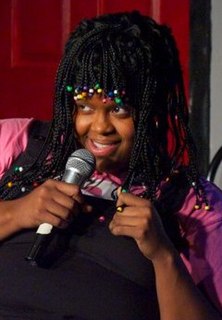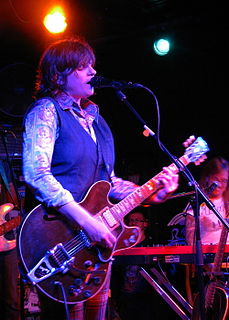A Quote by Susan Griffin
In my lifetime I have seen democracy begin to expand, not only to include those who have been excluded, but to provide a listening arena, a vocabulary, an intelligent reception for stories that have been buried. Not just stories of the disenfranchised and the marginalized, but marginalized and disenfranchised histories even in the lives of the accepted and the privileged.
Related Quotes
For girls and women, storytelling has a double and triple importance. Because the stories of our lives have been marginalized and ignored by history, and often dismissed and treated as 'gossip' within our own cultures and families, female human beings are more likely to be discouraged from telling our stories and from listening to each other with seriousness.
Whether you look at 'Glee' and its normalization of gay identity or you look at the work of Martin Scorsese and the Italian-American community, American culture is able to take these stories, which are seen as marginalized, and just turn them into American stories. And you don't think twice about it.
People that are much younger in areas that are much more, kind of, disenfranchised, I guess, as far as the gay movement goes, they still have a language that they've discovered around things. And they have a vocabulary to use, and they have a way to express themselves even when they're not accepted.
Long before I wrote stories, I listened for stories. Listening for them is something more acute than listening to them. I suppose it’s an early form of participation in what goes on. Listening children know stories are there. When their elders sit and begin, children are just waiting and hoping for one to come out, like a mouse from its hole.
As a woman of color, slowly and with some coercing, the not-for-profit theaters around the country are beginning to recognize and embrace the power of our stories, but with regards to Broadway and other commercial venues, we remain very much marginalized and excluded from that larger creative conversation.



































